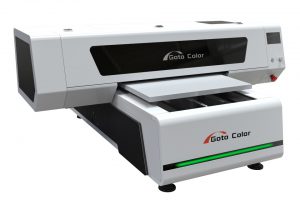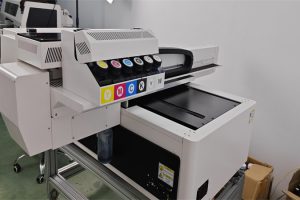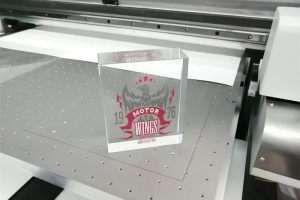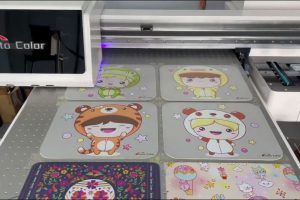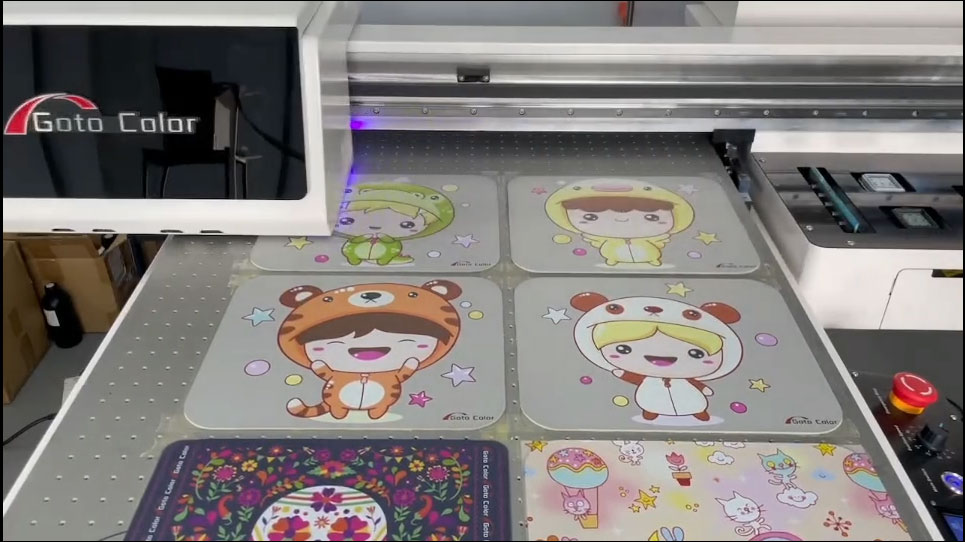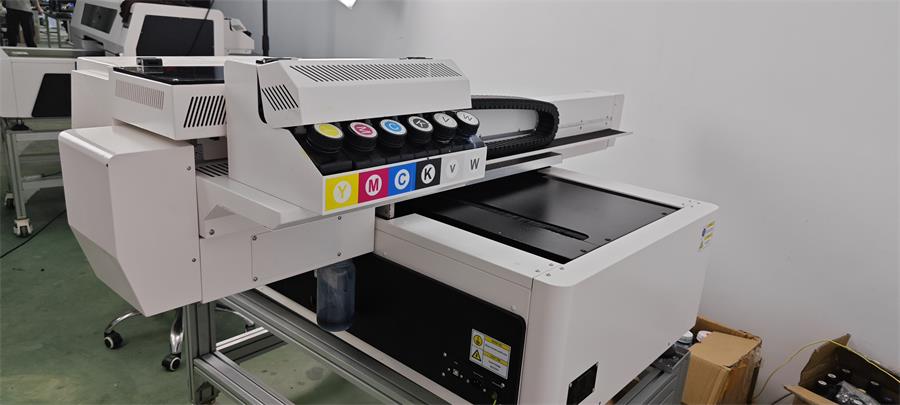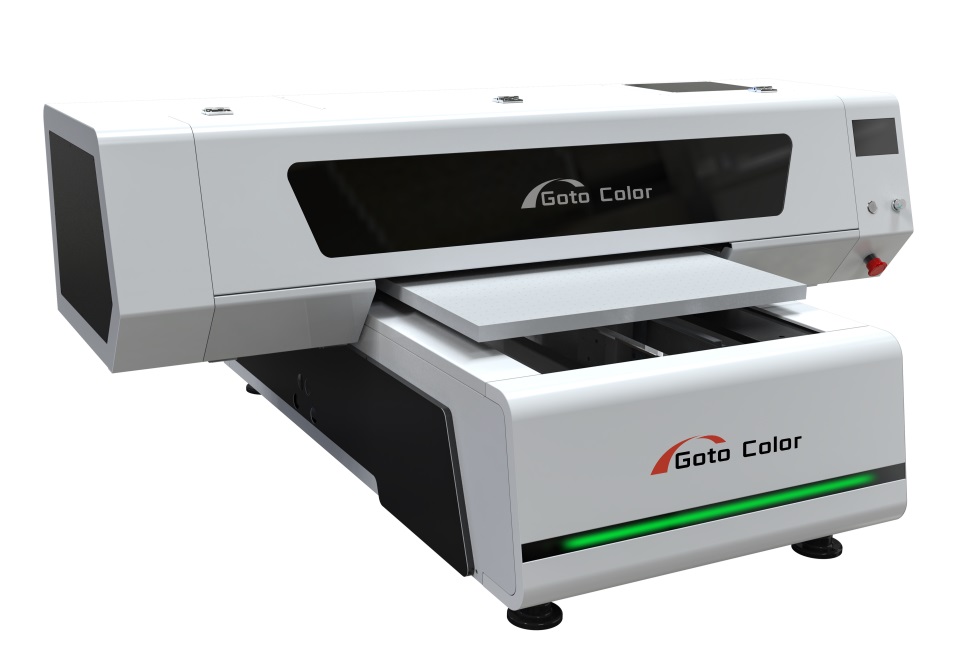Contents
1. Can UV Printers Print on Leather and Synthetic Materials?
Yes. UV printers can print directly on both natural leather and synthetic materials such as PU, PVC, and faux leather. The UV ink cures instantly on the surface under ultraviolet light, creating durable and detailed prints.
2. Surface Preparation is Critical
Leather surfaces vary in texture and oil content. Before printing, clean the surface with alcohol or a leather-safe cleaner to remove grease and dust. For synthetic materials, a primer or adhesion promoter may be needed to improve ink bonding.
3. Printing Process Overview
Place the leather or synthetic piece flat on the printer bed. Adjust the printhead height to match the material thickness. Use the printer’s vacuum table to hold it steady. Print in CMYK + White + Varnish mode if you want texture or gloss effects.
4. Ink Adhesion and Durability
UV inks form a hard film on the surface, but adhesion can vary by material. Soft or oily leathers may need pre-treatment. For flexible items like wallets or phone cases, use flexible UV ink to prevent cracking when bent.
5. Finishing and Protection
After printing, you can add a clear UV varnish layer for scratch resistance and a premium finish. If the item will be handled frequently, consider applying a thin protective coating or lamination.
6. Applications of UV Printing on Leather
- Custom phone cases
- Luxury packaging
- Personalized wallets and belts
- Automotive interiors
- Promotional leather goods
7. Key Advantages
- Full-color, high-resolution graphics
- Instant drying and ready-to-use prints
- Supports both natural and synthetic leather
- Optional 3D embossing and gloss effects



